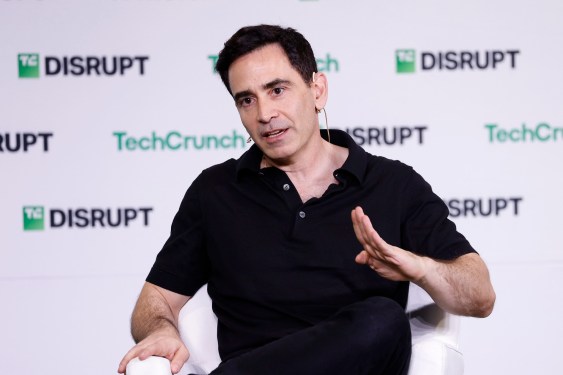Solo VC investor Elad Gil stated on stage at TechCrunch Disrupt that the AI boom is one of the least predictable tech cycles he has ever witnessed. Gil is an investor in many of the most successful companies from the past decade, including numerous leading AI firms today. Despite this, he believes that over the last year, certain AI markets have become nearly dominated by their leaders. Beyond these specific areas, he sees a vast portion of the AI landscape that remains open for competition.
Gil began investing in generative AI in 2021, a time when very few people were paying attention to the field. He was convinced of its potential after observing the massive leap in capability between GPT-2, launched in 2019, and GPT-3, launched in 2021. The significant step forward between the two models led him to believe that scaling this technology would be incredibly important. This conviction prompted him to back early-stage startups building products with large language models. His investments included foundational model creators like OpenAI and Mistral, as well as application companies such as Perplexity, Harvey, Character.ai, Decagon, and Abridge. Throughout 2024 and much of 2025, the rapid advancement of foundational models continued to upend the AI industry every few months.
Gil noted that AI was a unique market where the more he learned, the less he felt he knew. Typically, deeper knowledge of a subject makes predicting its future easier, but AI was characterized by haze and uncertainty, a quality he believes still exists in some AI sectors today.
However, he now observes markets with clear winners emerging. The most obvious example is the foundational model space itself. While hundreds of models exist and some countries like South Korea are developing their own sovereign models, a handful of leaders have risen to the top. He predicts the winners will be Google, Anthropic, OpenAI, and possibly xAI, Meta, and Mistral.
After foundational models, he points to AI-assisted coding as another area with runaway winners that will be difficult for new entrants to challenge. Not only have foundational model makers like Anthropic with Claude Code and OpenAI with Codex moved into this space, but startup leaders like Anysphere’s Cursor and Cognition’s Devin are also positioned as hard-to-beat competitors. Well-funded startups like Magic and Poolside are also in pursuit.
He sees medical transcription as another cornered market, with Abridge as a frontrunner and a handful of other companies like Ambiance being important players. Customer support, an early target for both traditional AI and new AI agent startups, is also cited as having established, hard-to-catch market leaders. His portfolio company Decagon is one example, and OpenAI chairman Bret Taylor’s startup, Sierra, also competes in this space. Incumbent companies like Salesforce and Hubspot are also adding their own AI offerings here.
So which markets seem wide open? Gil identifies financial tooling, accounting, AI security, and other inherently interesting markets as areas where it is still unclear who will ultimately succeed.
Ironically, fast growth is no longer a reliable signal that a company will be a breakout hit. Gil explained that CEOs of every large company are mandating their teams to figure out an AI strategy. These large enterprises are now willing to try things they would have never considered two years ago, solely because of AI. This means new AI markets can quickly generate significant revenue from big-name enterprise customers, but that does not guarantee those customers will stay. Gil points out that it is only after a market goes through its trial-phase boom cycle that you can see if the revenue is sustainable and will grow. He distinguishes between false signals and things that are genuinely working, citing legal AI startup Harvey as a market leader that is just working. Harvey raised three massive rounds in 2025, leaping from a three billion dollar valuation to five billion, and then to eight billion, in just a few months.

